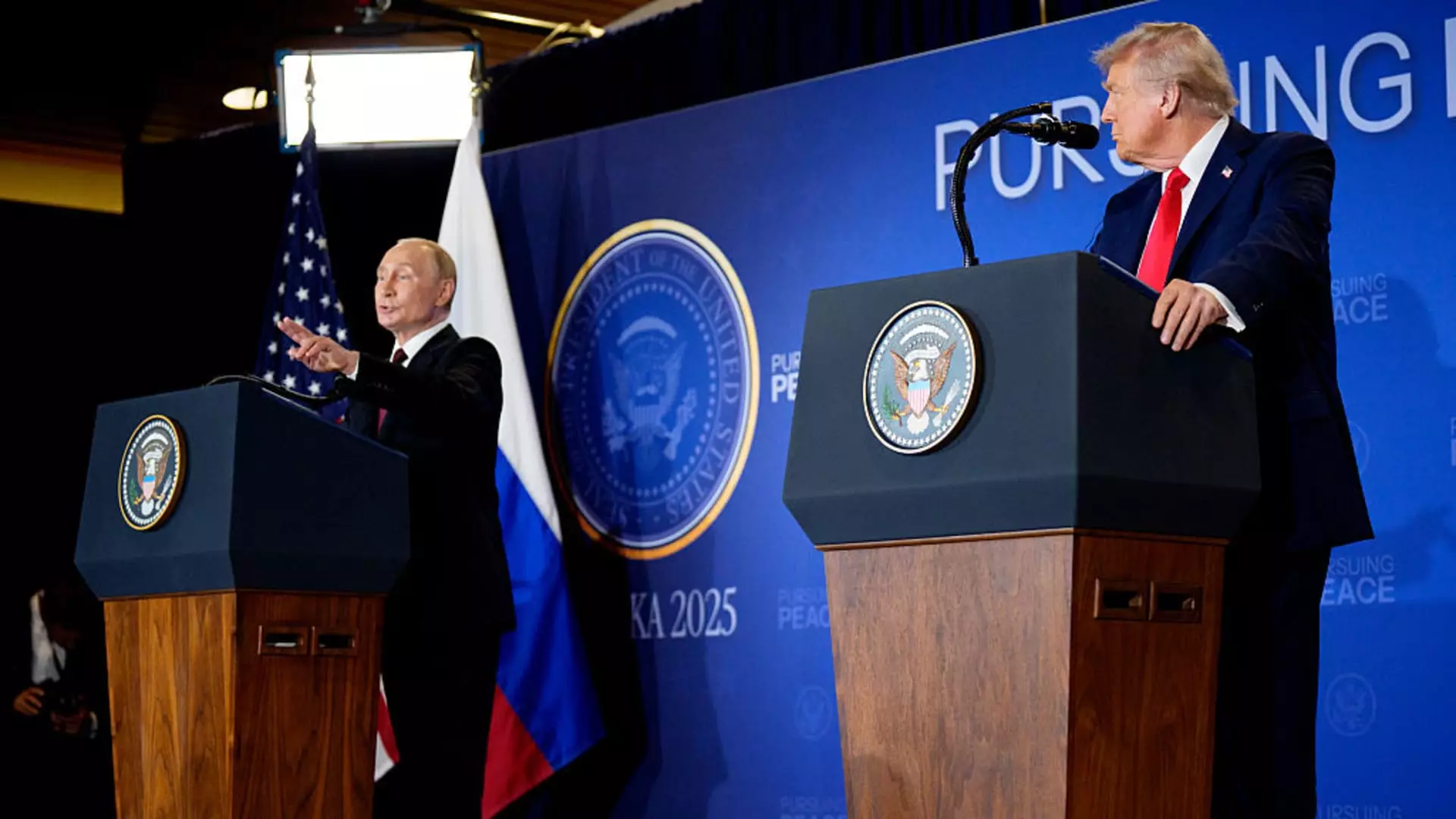The recent high-profile summit between U.S. President Donald Trump and Russian President Vladimir Putin appears more like a carefully scripted performance than a meaningful step toward peace or stability. Descriptors such as “productive” are bandied about, yet the true outcome remains opaque, muddled by vague statements and unsubstantiated agreements. Behind the rhetoric lies a disturbing tendency among world leaders to cloak their political ambitions in diplomatic language, regardless of the long-term consequences for global security. Such summits often serve as platforms for political posturing rather than genuine solutions, lodging in the viewer’s mind a false sense of progress while critical issues remain unaddressed.
The American portrayal of the meeting as a “listening exercise” signals an alarming retreat from proactive American engagement in international crises. This framing suggests a cautionary posture: the U.S. is less interested in assertively shaping policy than in appearing open to dialogue. However, the absence of concrete results raises questions about whether these talks are merely window dressing—a kind of diplomatic appeasement that ultimately lends legitimacy to authoritarian regimes while sidelining the voices of those directly impacted, most notably Ukraine.
The Risk of Letting Diplomacy Drift Into Capitulation
A striking aspect of this summit is the conspicuous omission of Ukraine from the negotiations. Ukrainian President Zelenskyy’s call for a multilateral meeting underscores the nation’s desperate desire for inclusion and clarity in a conflict that threatens its sovereignty. Yet, the U.S. narrative seems to tolerate a dangerous silence, implying that strategic interests and diplomatic politeness outweigh the urgent need for a firm stance on Ukraine’s future.
This sideline approach emboldens Russia’s ambitions. Putin’s characterization of the talks as a “starting point” hints at the possibility of ongoing negotiations that may eventually precipitate concessions at Ukraine’s expense. Such an outcome risks creating a dangerous precedent: that geopolitics can be negotiated away, and sovereignty can be bartered in the name of diplomacy. It is a capitulation that absolves Western powers from the heavy moral responsibility of defending democratic principles—principles rooted in respect for national independence and territorial integrity. Diplomatic engagements that sideline the core stakeholders only deepen skepticism about the sincerity of Western commitments to democracy and human rights.
Revisiting Cold War Paradigms in a New Era
Putin’s description of strained U.S.-Russia relations as “the lowest point since the Cold War” reflects a worldview deeply rooted in a zero-sum mentality, where diplomatic engagement often appears as a facade for strategic manipulation. His proposal of another meeting in Moscow seemingly aims to prolong the status quo rather than resolve it. Meanwhile, Trump’s assertion of progress and readiness to inform NATO and Zelenskyy about discussions amounts to mere perfunctory diplomacy—an attempt to placate domestic and international audiences while avoiding firm commitments.
The Russian media’s gleeful interpretation of the summit as a win signals how these talks are viewed as a victory for Moscow, casting doubt on whether the U.S. is genuinely pursuing a balanced approach. The danger lies in oversimplifying complex geopolitical conflicts into diplomatic successes or failures, ignoring the difficult realities faced by Ukrainian civilians caught in the crossfire. These negotiations risk becoming a distraction from the fierce moral imperative to stand firm against authoritarian aggression, instead creating a façade of diplomacy that could ultimately empower the very regimes committed to suppressing democratic aspirations.
The Power of Words Versus the Reality of Action
What truly undermines the credibility of these summits is the stark contrast between language and action. Trump’s call for Zelenskyy to “make a deal” echoes a troubling tendency in international diplomacy—prioritizing negotiated settlements over the integrity of affected nations. This frames peace as a commodity to be bargained over rather than a right to be protected.
By engaging in diplomatic overtures that downplay Ukraine’s sovereignty, Western leaders risk normalizing a dangerous pattern: diplomatic salutes masking concessions that undermine democratic values. Real peace cannot be achieved through hollow negotiations that exclude the voice of the oppressed. True diplomacy should serve to uphold human dignity and national sovereignty, not to obscure the underlying power dynamics that threaten to erode them.
In sum, these diplomatic interactions fall short of genuine progress; they serve more as a strategic spectacle than a meaningful effort to attain peace. The danger is not merely in the ineffective outcomes but in the underlying message—that in global conflicts, sovereignty is negotiable and moral responsibilities can be postponed indefinitely.


Leave a Reply